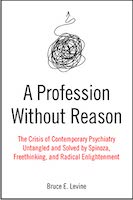What’s Behind ‘Substantial Increases’ in Suicide Rate for Middle-Aged Americans? Bad Economy Is Likely Culprit
The U.S Centers for Disease Control and Prevention (CDC), on May 3, 2013, reported that “recent evidence suggests that there have been substantial increases in suicide rates among middle-aged adults in the United States.” CDC analyzed National Vital Statistics System mortality data from 1999–2010, and found that the suicide rate among Americans aged 35–64 years […]
‘Gloom and Sadness’: How Abraham Lincoln’s Depression Got Him Elected
Abraham Lincoln is routinely ranked by historians as our greatest president. There have been roughly 16,000 books written about him, including Joshua Wolf Shenk’s Lincoln’s Melancholy: How Depression Challenged a President and Fueled His Greatness. What’s perhaps most interesting about Lincoln’s struggle with depression is that it’s tied to the stigma about mental illness that […]
Grief, Tantrums and a Bad Memory Could Equal ‘Crazy’ Soon
When the new DSM-5 manual is released, some common—and normal—emotions may be labeled mental disorders. That would likely mean many more people taking medication too.
Want to Ensure There’s Not Another Adam Lanza? Look at the ‘Lost Boys’ Around You
Following the shootings in Newtown and other recent mass shootings, the White House issued the following announcement: “The Administration is proposing steps to identify mental health issues early and help individuals get the treatment they need before these dangerous situations develop.” But as a clinical psychologist, I have to ask whether earlier mental health treatment […]
Imperialist Psychiatrists, Psychopathic Corporatists—But I Repeat Myself
Journalist/humorist Jon Ronson’s TED talk “Strange Answers To The Psychopath Test” addresses the DSM, diseasing normality, faking mental illness, and the psychopathy of former CEO “Chainsaw” Al Dunlap. The Huffington Post, for their TED Weekends section, asked me for a reaction to Ronson’s talk—but then refused to print my blog because, a Huffington Post staffer […]
The Systemic Crushing of Young Nonconformists and Anti-Authoritarians
“To be a hero,” says Philip Zimbardo in his talk The Psychology of Evil, “you have to learn to be a deviant, because you’re always going against the conformity of the group.” That’s true, and I think Zimbardo would agree that the heroism required to battle for liberty and justice in the face of tyranny […]
Why the Newest Psychiatric Diagnostic Bible Will Be a Boon for Big Pharma
After the American Psychiatric Association (APA) approved the latest version of its diagnostic bible, the DSM-5, psychiatrist Allen Frances, the former chair of the DSM-4 taskforce and currently professor emeritus at Duke, announced, “This is the saddest moment in my 45-year career of practicing, studying and teaching psychiatry” (“A Tense Compromise on Defining Disorders”). The […]
What Happened After a Nation Methodically Murdered Its Schizophrenics? Rethinking Mental Illness and Its Heritability
If a nation murdered and sterilized an estimated 73% to 100% of its diagnosed schizophrenics, yet a generation later that nation had a higher rate of incidence of new cases of schizophrenia than did surrounding nations, shouldn’t we have questions about the claim by the mental health establishment that schizophrenia is highly heritable? Moreover, since […]
How 7 Historic Figures Overcame Depression without Doctors
While Sylvia Plath and Ernest Hemingway received extensive medical treatment for depression but tragically committed suicide, other famously depressed people—including Abraham Lincoln, William James, Georgia O’Keeffe, Sigmund Freud, William Tecumseh Sherman, Franz Kafka, and the Buddha—have taken different paths. Did those luminaries who took alternative paths and recovered really have the symptoms of major depression, […]
Behavior Modification and an Authoritarian Society
The corporatization of society requires a population that accepts control by authorities, and so when psychologists and psychiatrists began providing techniques that could control people, the corporatocracy embraced mental health professionals.




